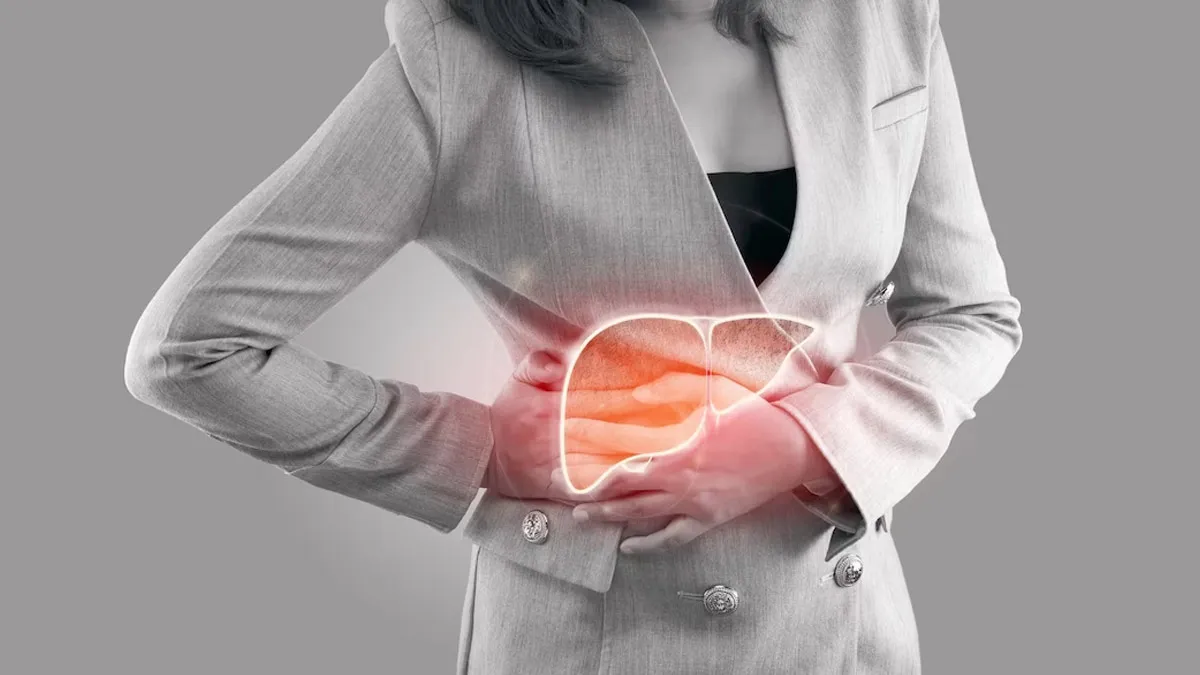
The liver is often associated with digestion and detoxification, but did you know that its health directly impacts your heart? While the heart and liver may seem like separate entities, they work closely together to maintain overall well-being. Poor liver health can significantly increase the risk of cardiovascular diseases, making liver care an essential aspect of heart health. Here’s why your liver matters for your heart and how you can keep both in top condition.
Table of Content:-
Liver-Heart Connection
In an exclusive interaction with the editorial team of Onlymyhealth, Dr Shrey Kumar Srivastav, Senior Consultant, Sharda Hospital - Noida, explained the liver-heart connection. Read ahead to know everything he shared with us.
Regulation of Cholesterol Levels
The liver plays a critical role in producing and processing cholesterol. It helps regulate levels of both LDL (bad cholesterol) and HDL (good cholesterol). When the liver isn’t functioning properly, it can lead to excessive LDL cholesterol in the bloodstream, contributing to plaque buildup in arteries and increasing the risk of heart disease.

Also Read: Are Hiccups Normal in Newborn Babies? What Every Parent Should Know
Inflammation and Heart Disease
Chronic liver conditions, such as fatty liver disease, contribute to systemic inflammation, which is a major risk factor for cardiovascular disease. Inflammation can damage blood vessels and lead to high blood pressure and arterial stiffness, elevating heart disease risk.
Blood Sugar Control
The liver helps regulate blood sugar levels by storing and releasing glucose as needed. When the liver is compromised, it can contribute to insulin resistance, increasing the likelihood of diabetes—a significant risk factor for heart disease.
Toxin Removal
The liver filters toxins and harmful substances from the blood. When liver function is impaired, toxins can accumulate in the bloodstream, leading to oxidative stress and inflammation, both of which contribute to cardiovascular problems.

Also Read: Are Hiccups Normal in Newborn Babies? What Every Parent Should Know
How to Keep Your Liver Healthy
Maintaining liver health is crucial for heart well-being. Here are some key strategies to support your liver and, in turn, protect your heart:
Adopt a Liver-Friendly Diet
Eat plenty of fiber-rich foods like vegetables, fruits, and whole grains.
Include healthy fats from sources like olive oil, nuts, and fatty fish.
Avoid trans fats and excessive saturated fats that can worsen liver and heart health.
Reduce refined sugars and processed foods to prevent fatty liver disease.
Maintain a Healthy Weight
Obesity is a major risk factor for fatty liver disease and heart disease. Regular exercise and a balanced diet can help maintain a healthy weight and prevent these conditions.
Exercise Regularly
Engaging in at least 150 minutes of moderate-intensity exercise per week can improve liver function, reduce inflammation, and enhance cardiovascular health.
Limit Alcohol and Avoid Toxins
Excessive alcohol consumption can lead to liver disease, increasing the risk of heart problems. Reducing alcohol intake and avoiding exposure to harmful chemicals can support liver function.
Stay Hydrated
Drinking enough water aids in digestion, detoxification, and overall liver function, keeping your cardiovascular system in check.
Regular Health Screenings
Periodic liver function tests and cardiovascular checkups can help detect issues early, allowing for timely intervention and disease prevention.
Bottomline
A healthy liver is essential for a strong heart. By taking steps to protect and support liver function, you can reduce inflammation, regulate cholesterol, and maintain optimal cardiovascular health. Incorporate liver-friendly habits into your daily routine to ensure both your liver and heart remain in top shape for years to come.
Also watch this video
How we keep this article up to date:
We work with experts and keep a close eye on the latest in health and wellness. Whenever there is a new research or helpful information, we update our articles with accurate and useful advice.
Current Version